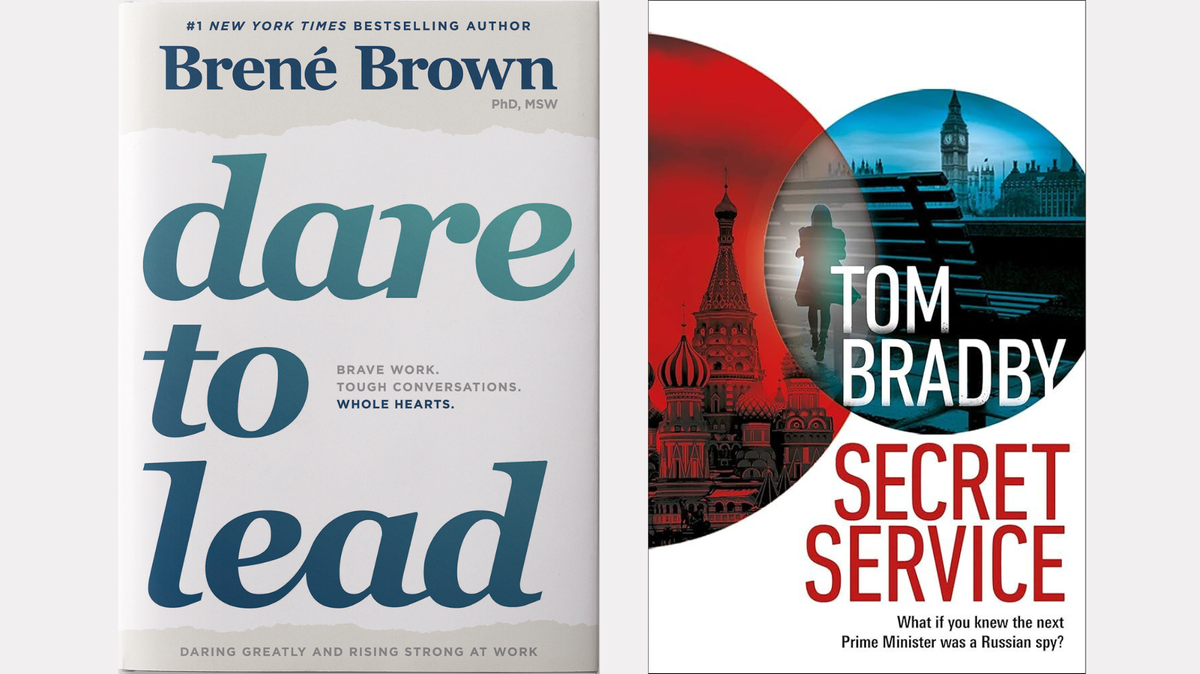An Intriguing Balance Between Vulnerability and Strategy
This month, I explored two insightful books that focus on the balance between vulnerability and strategy: Dare to Lead by Brené Brown and Secret Service by Tom Brady.

My readings this month took me on a journey through two thought-provoking books that examine the delicate dance between openness and strategy.
Secret Service by Tom Bradby
After reading Secret Service, I realised how well Tom Bradby blends political drama with the emotional complexity of the main character, Kate Henderson. The story really highlights how fragile trust can be—both in politics and in personal life. Kate discovers there might be a Russian spy in the British government, and this makes you think about how even the strongest systems can be corrupted. Bradby makes you question how much of what we see in politics is genuine, and how much is influenced by hidden forces.
What I found particularly interesting was how Kate’s work and personal life are so closely connected. She’s trying to uncover a betrayal in the government, while at the same time, her marriage is falling apart, and she’s struggling with her relationship with her children. This makes the story more intense because you can feel the pressure on Kate from both sides. It really made me think about loyalty—how long do you stand by someone, and when do you decide to walk away?
On a larger scale, Secret Service made me reflect on the link between global politics and personal integrity. The story about Russian interference feels very relevant today, especially when it’s so hard to know what’s true and what’s false. It’s a reminder of how easily democratic systems can be weakened from within, and how important it is to have people like Kate, who are willing to risk everything to expose the truth. The book isn’t just a thriller—it’s also a reflection on trust, power, and the blurred lines between personal and public life.
Dare to Lead by Brené Brown
I found Dare to Lead to be an inspiring guide on how to lead with courage and vulnerability. Brené emphasises that true leadership isn’t just about authority or power; it’s about building trust and connection with your team. She argues that being vulnerable—showing our true selves, including our fears and uncertainties—actually makes us stronger leaders. This idea really resonated with me because it challenges the traditional view that leaders must always be confident and in control.
One key takeaway from the book is the importance of creating a culture of openness and feedback in any organisation. Brené explains that when leaders encourage honest conversations and are willing to hear difficult truths, it leads to greater innovation and teamwork. I appreciated her practical advice on how to have tough conversations and manage conflict in a way that fosters understanding rather than defensiveness.
Another important concept in Dare to Lead is the idea of "braving trust." Brené breaks down what trust really means and offers a clear framework to help us build it within our teams. She uses the acronym BRAVING to outline the key elements of trust: boundaries, reliability, accountability, vault (keeping confidences), integrity, non-judgment, and generosity. This framework made the concept of trust feel more tangible and actionable.
Overall, Dare to Lead isn’t just for those in leadership positions; it’s a valuable read for anyone wanting to improve their relationships at work and in life. Brené’s insights remind us that vulnerability is not a weakness, but a source of strength that can lead to more authentic connections and effective teamwork. The book encourages us to be brave in our leadership and to create environments where everyone feels safe to speak up and contribute.





